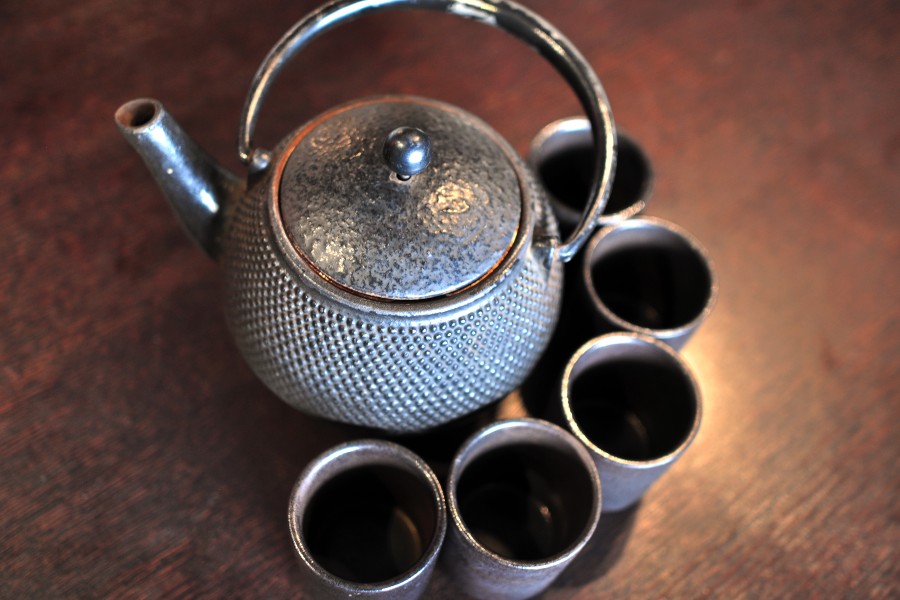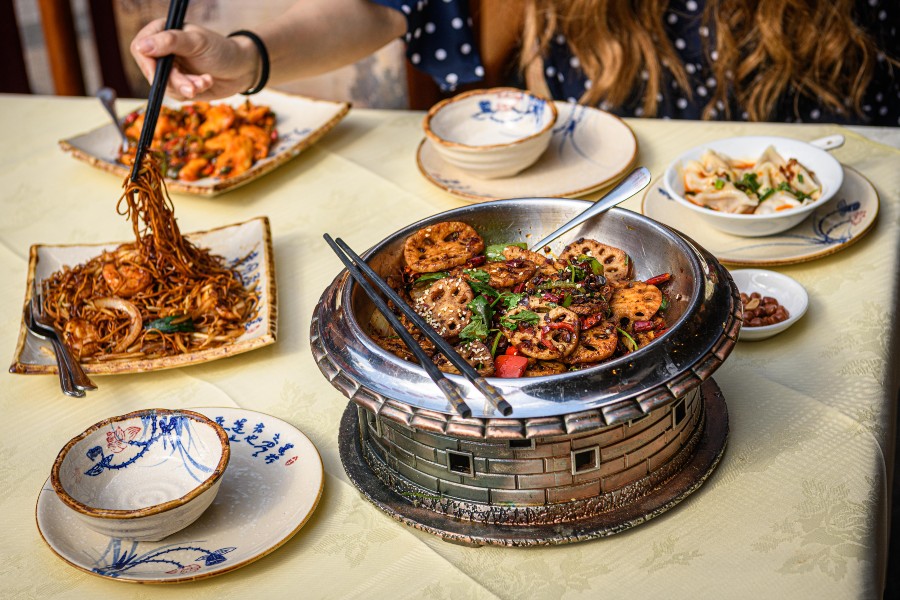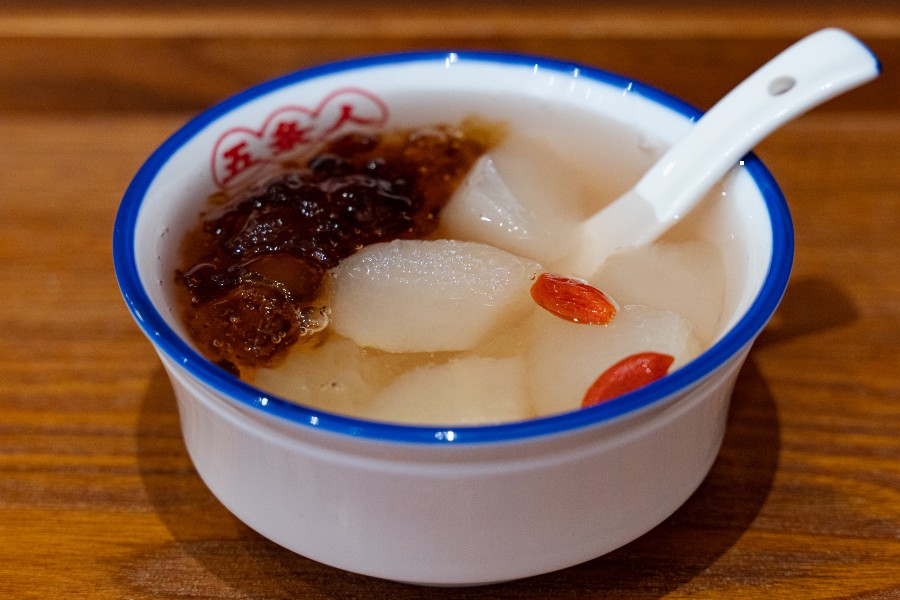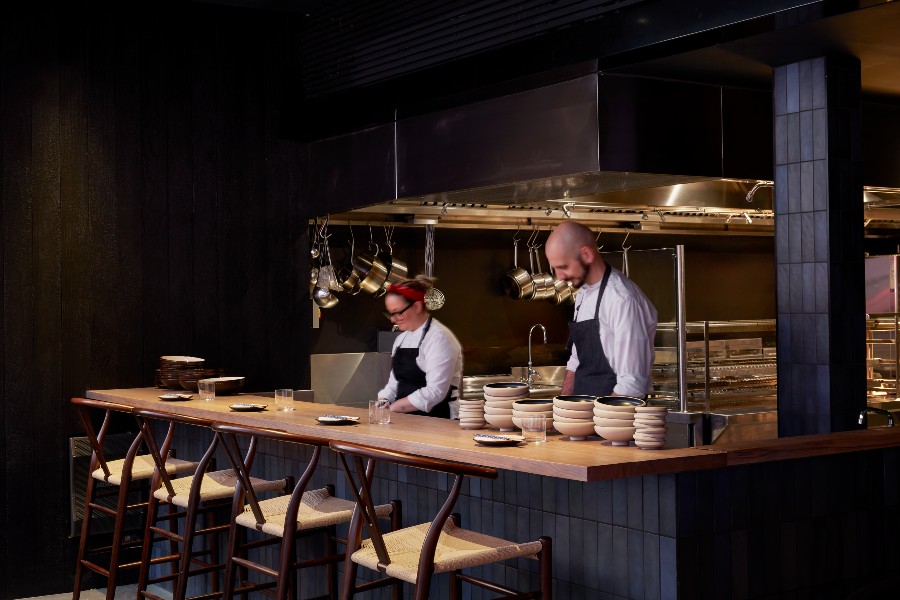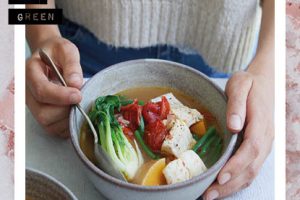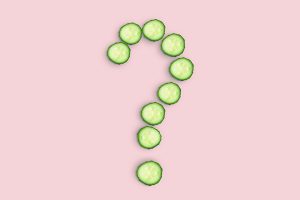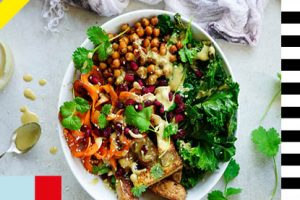Wellness weekends: Plant-based Chinatown
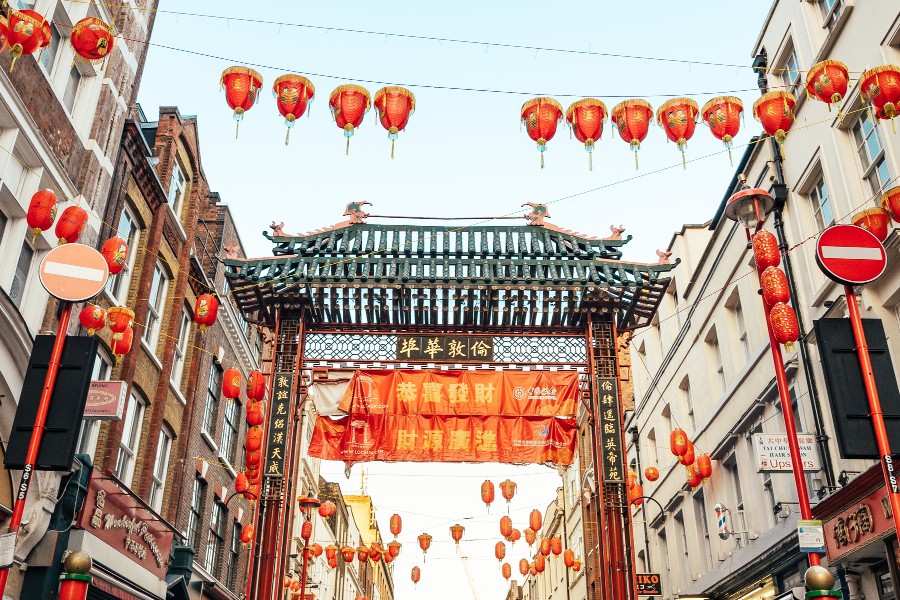
Chinatown is far from a destination that’s off the beaten track. Its huge Chinese gates lined with red lanterns and authentic Chinese restaurants draw in the crowds no matter what day of the week. However, lesser-known is its contribution to the well-being space.
Chinese food is commonly associated with meat dishes because a lot of Chinese restaurants base their menus on Cantonese cuisine. However, study the menu closer and you’ll find a plethora of Asian vegetable dishes available. Many of these ingredients have high levels of polyphenols which can contribute to building your body’s ability to protect against disease.
Its nutritional value doesn’t just stop at Chinese food and drink. Many of these vegetables can be found in Chinese medicine, Korean skincare, and Japanese cuisine. So, we wandered Chinatown to discover the plant-based delights on offer to soothe the mind, body, and soul.
Mind
Plum Valley
Drinking tea is heavily entrenched in Ancient Chinese philosophy and is believed to be one way to balance energies in your body. It subscribes to the fundamental concept of Yin and Yang.
In the context of tea, Iris Ma, owner of Plum Valley says, Yin is cold energy and Yang is hot energy. Our bodies need to have equal measures of both to feel healthy and balanced. This is where tea comes in because some blends will be predominantly Yin, others Yang, and some neutral. It means tea can be drunk to restore balance to the body or treat certain conditions.
For instance, Po Li, a smoky-tasting black tea possesses Yang energy. Its commonly drank alongside deeply fried food because it’s believed to wash away the oil we put into our bodies. Lychee red tea – another Yang tea offered by Plum Valley – is good for those on their period, because it provides the heat that the body yearns for during menstruation.
Chrysanthemum tea, on the other hand, is a Yin tea, which means it can be useful to drink when you have mouth ulcers (an indication that you have too much Yang energy).
PureSeoul
Skincare has risen in the ranks of self-care acts over the past few years. The South Korean skincare industry is at the forefront of innovation, with its government investing heavily. It means that a lot of the ingredients you use in your average skincare today, will have originated from South Korea a few years prior.
PureSeoul, a Korean beauty and skincare business, has recently opened its doors in Chinatown and you’ll most certainly find the latest products that harness recent innovations – many of which are plant-based. (We’re still swooning over its sheet mask wall).
Green tea: contains anti-oxidants and caffeine which can perk up skin. Inisfree’s Green Tea Fresh Cleanser contains Camellia Sinensis Leaf Extracts which can be particularly good for controlling sebum (the oil that clogs your pores and causes blackheads and spots). Benton’s Green Tea Serum and toner is also a good option for green tea lovers, with more than 50% of the serum deriving from Boeseng tea extract making it rich in amino acids.
Muan Onion: has properties that can help decrease inflammation and hyperpigmentation. It’s currently a rising star in the skincare world. Inisfree’s Onion Newpair Gel Cream aims to lessen acne, help with scars and moisturise – and don’t worry, the product is not onion-scented. You can apply this at the moisturising stage of your routine.
Watermelon: as its name suggests can be a very hydrating ingredient. Heimish’s Watermelon Moisture Soothing Gel Cream makes use of this by combining with aloe vera – creating a fruity scent. In addition, it shouldn’t bring you out in acne. This cream also combines tea tree, witch hazel, and ivy fruit extracts which act as an anti-microbial.
Milk Vetch Root: is packed with antioxidants and can help calm redness. Pyunkang Yul’s Essence Toner – a firm favourite in the skincare community uses milk vetch root extract and very few other ingredients – making it a good choice for sensitive skin, especially in summer.
Lavender: is naturally high in antibacterial properties which makes it good to treat and prevent spots. It wouldn’t be right for us to talk about Korean skincare without mentioning one of its famous sheet masks. Mizon’s Lavender Sheet Mask it the ideal candidate to moisturise dry skin, soothe acne, and just smell pretty damn amazing.
Body
Everwell Chinese Medicine
Chinese medicine is one of the oldest forms of healthcare and many still rely on its healing abilities. Everwell Chinese Medicine is a very established chemist in this space, with one of its branches in Chinatown.
The beauty of Chinese Medicine is that it can be completely tailored to the ailments you’re experiencing by creating unique blends of natural ingredients. The ingredients can either be boiled in water and then drank, or bought in powdered form.
Peter Ren, owner of Everwell Chinese Medicine says some of the most popular ingredients include rice paper pith (tong cao), monk fruit (luo han guo), cinnamon twig (gui zhi), liquorice root (gan cao), and prince ginseng root (tai zi shen).
Aside from its plant-based medications, Everwell also provides others treatments such as acupuncture, which can be ideal for chronic pain, and tension-type headaches. It’s also an official test centre for the COVID-19 fit-to-fly certifications for those looking to travel to China and other countries requiring testing.
Soul
Jinli
Sichuan cuisine makes use of a lot of the nutritious vegetables that you may see lining the aisles of Asian supermarkets but are unsure how to prepare. Jinli will show you exactly how to enjoy these.
Its Dry Pot (which does have a light sauce) gives diners the option to choose a base layer – we recommend lotus root which is rich in antioxidants. You can then add other vegetables into the mix such as white gourd, Chinese leaves, crown daisy, and bamboo shoots. This is definitely a sharing dish and impressively served up in a tremendously ornate bowl. Naturally, pair this with the classic staple of steamed rice.
While the Dry Pot isn’t majorly spicy, it contrasts well with a side of smashed cucumber and black fungus. Smashed cucumber, a fresh crunchy salad, arrives in a marinade of ginger which has germ-fighting properties. Black fungus, another refreshing dish, boasts of health properties that may protect the liver, lower cholesterol, and boost gut health. It’s best to try the fungus at somewhere like Jinli because it requires expert preparation.
Five Friends Desserts
Fruit is favoured as a dessert in some Chinese cuisines which means it’s easy to find sweet treats that are much lower in processed sugar than other typical desserts. One dish that particularly stands out as showcasing the best of the fruit bowl is sweet soup. Literally, as the name suggests, it’s usually chunks of superfoods immersed in a cold fruity liquid.
Five Friends Desserts – a franchise popular in China – has a substantial range of sweet soups to try. Our recommendation is peach resin, white fungus, and pear. The soup itself is extremely sweet, so diners will still feel they’re eating a dessert despite its health properties.
Peach resin, which is sourced directly from wild peach trees it naturally rich in collagen – so, perky skin pending. The Michelin Guide also claims that it’s an ingredient that can help urine infections, quench thirst, and relief stress. White fungus, another ingredient you may not have tasted before, is rich in fibre as well as a carbohydrate called polysaccharides which can aid the brain, heart, skin, and immunity.
Yatay
Japanese cuisine tends to be considered healthy on account of its sushi, but there’s a lot of nutritional dishes on offer that are solely plant-based – no raw fish in sight. Yatay – a Japanese tapas-style restaurant – will show diners exactly how to enjoy perhaps some of the vegetable we find most simple.
Its vegetable skewers beautifully cook shallots, tomatoes, beetroot, carrot, potato, and king oyster mushrooms (which are a particularly good source of plant-based protein). All are drizzled with a yuzu-koji basil mix which is high in vitamin c.
We recommend pairing this with some steamed rice and the wakame salada which contains vitamin-rich seaweed and anti-oxidant-heavy bean shoots. Wash this down with one of the restaurant’s alcohol-free cocktails like the shisho or nashi. Nashi, in particular, is a green tea cocktail, and green tea tends to be high in health benefits.
A plant-based pleasure centre
Chinatown is an amazing place for food. But it can be intimidating if you’re not familiar with anything on the menu, especially for plant-based eaters. However, the business owners of Chinatown are pleased to share their culture with you. They’ll guide you to products and food right for your nutritional needs. So, don’t let your lack of knowledge perturb you from experiencing the delights of this undiscovered aspect of one of London’s hotspots.



